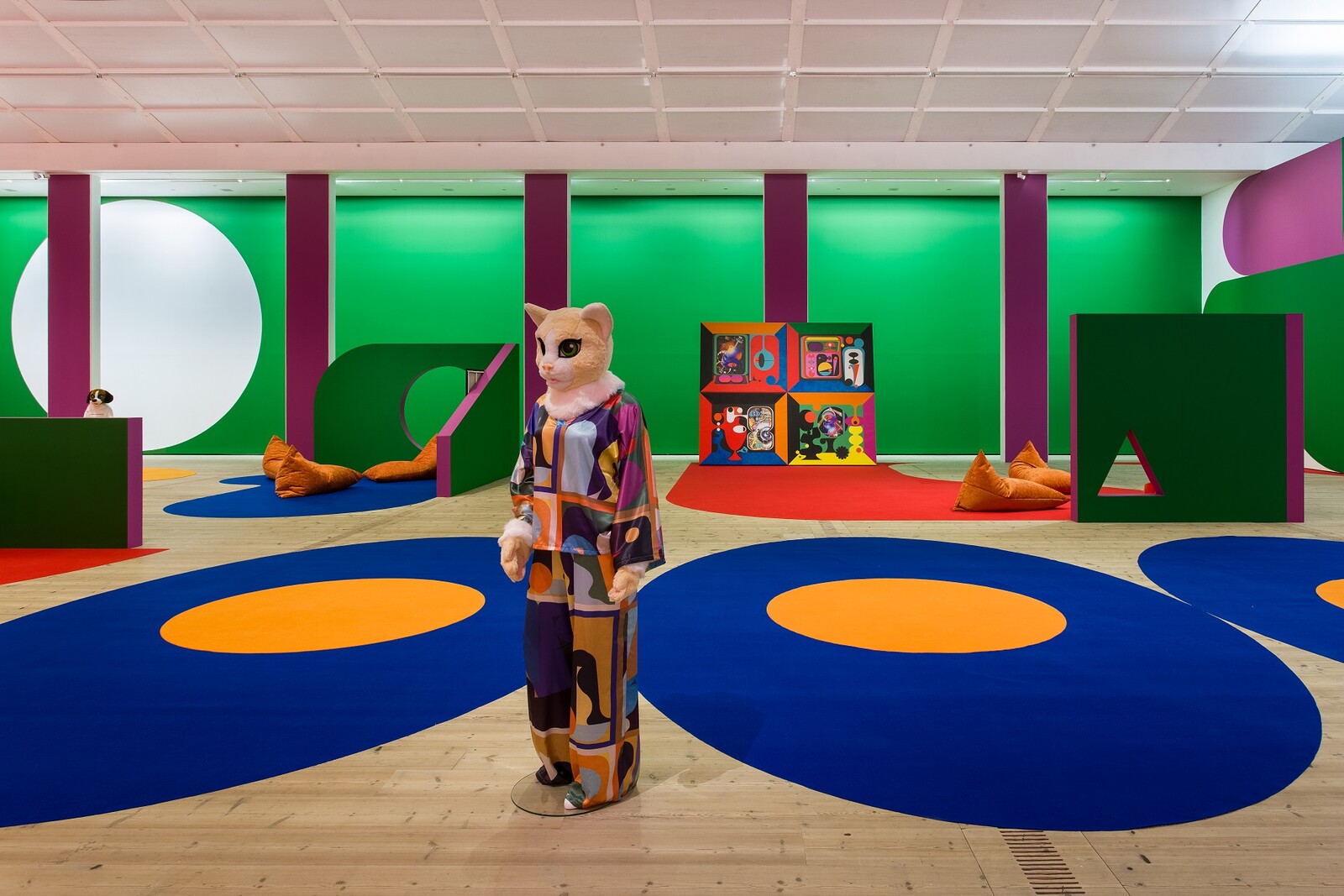Biosfera Peluche / Biosphere Plush
May 28–October 30, 2022
This summer, Tate St Ives will bring the first UK solo exhibition by Argentinian artist Ad Minoliti to Cornwall. Trained as a painter, Minoliti (b.1980) draws on the rich legacy of geometric abstraction in Latin America to create alternative universes influenced by feminist and queer thought. For this interactive show, Minoliti’s playful approach to painting will transform the physical gallery space into an imagined world, merging ideas around modern art, social justice, internet subcultures, and science fact and fiction. Following an inaugural presentation at BALTIC Centre for Contemporary Art, Gateshead, this site-specific installation for Tate St Ives reimagines the gallery as a vibrant and futuristic environment that proposes ideas for inclusive living.
Titled Biosfera Peluche / Biosphere Plush, the exhibition takes as its starting point a critical exploration of Biosphere 2—the world’s largest Earth science experiment, launched in the Arizona desert in 1984. This monumental project isolated eight people in airtight domes to study whether humans could create and sustain life in artificial environments such as space stations. Interested in how this experiment highlighted the colonial and capitalist intentions of space exploration, as well as perpetuating a patriarchal and monocultural society, Minoliti has created an experimental station that subverts these purposes, valuing all identities, experiences and abstract forms.
Using the gallery walls as a canvas, Minoliti’s colourful geometric murals set the scene for this new universe. Inside the imagined biosphere, new works from the artist’s Fable (Butterflies and Flowers) series use colour and shape to deconstruct gender roles. These will be shown alongside works from Minoliti’s Space Playset series, often referred to as “cyborg paintings” due to their origins as spray-painted images that are digitally manipulated, printed, and then overpainted by hand. Created by both human and machine, Minoliti invites viewers to question the distinctions we make between biology and technology. The space is also inhabited by hybrid creatures, who reference cartoons and contemporary subcultures popular online. These human-sized avatars, a species which Minoliti calls “Furries,” each have non-binary names and wear clothing designed by the artist alongside collaborator Lam Hoi Sin. Bringing together ideas from queer and feminist theory, animalism and childhood, Minoliti further encourages viewers to think beyond the categorisations that we make between things—male and female, terrestrial and alien, art and everyday life.
A focal point of the installation is Minoliti’s Feminist School of Painting—an anti-school of art. Transforming the gallery space into an active classroom, the school will host a programme of free workshops developed by creative and non-art practitioners. This series of experimental sessions involving discussion and practical art activities, will invite visitors to take part in deconstructing and rebuilding a new world which focuses on generosity and cooperation.
Ad Minoliti: Biosfera Peluche / Biosphere Plush has been produced by BALTIC Centre for Contemporary Art, curated by Irene Aristizábal. This exhibition has been creatively adapted for Tate St Ives in collaboration with Anne Barlow and Giles Jackson. Ad Minoliti: Biosfera Peluche / Biosphere Plush is kindly supported by the Ad Minoliti Exhibitions Supporters Circle, Tate Americas Foundation and Tate Members.
Opening alongside this is a new exhibition bringing together two artists—one modern, one contemporary—connected with West Cornwall. Wilhelmina Barns-Graham CBE (1912–2004) and Jonathan Michael Ray (b.1984) are separated by time, as well as the media and form their works take. The exhibition considers how both artists draw inspiration from the local landscape, exploring the idea that there is more to experience in nature than can be found on the surface.

